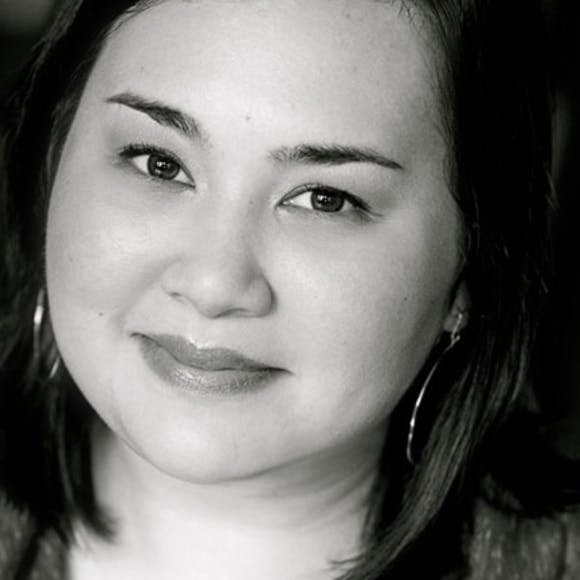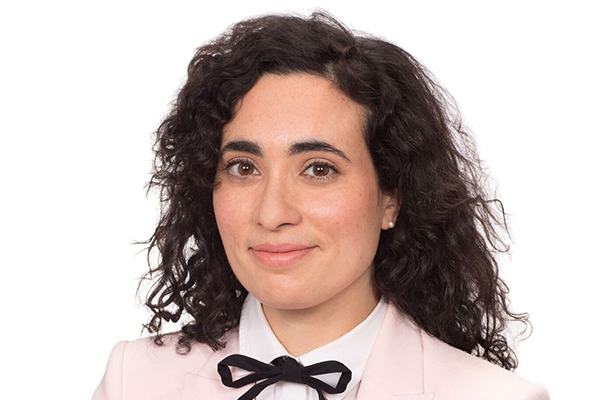Book: There is No Right Way To Do This

Author: Herbert Lui
Author Bio:
"Herbert Lui, is a writer and an editorial director. His editorial studio, Wonder Shuttle, has worked with companies such as Shopify, Twilio, and Skillshare, and organizations like the City of Toronto. Herbert is also the editor of The World According to Kanye, which was featured at Hypebeast, The FADER, and Complex. Additionally he hosted Prologue, a video series where recording artists like Ty Dolla $ign, Post Malone, and A$AP Ferg talk about the early days of their creative journeys."
1. Before we get into your book, “There is No Right Way To Do This” I want to ask what sparked your love for Kanye West’s work and what is your favorite album by him?
The first Kanye West music video I watched was “All Falls Down.” It was difficult to miss. The song was amazing, but the video really took it to another level. Chris Milk did a great job with it—I remembered just wondering how they shot the scene where Kanye rapped at the mirror, because you can’t see the camera. If I had to say a moment, that was it, but the truth is Kanye’s music was a permanent fixture in my iTunes Most Played through the next decade. I don’t even check my Spotify Wrapped because it’s either Kanye or Pusha T.
Favorite album really changes on any given day, but most days it’s The Life of Pablo. I’d say My Beautiful Dark Twisted Fantasy comes in a really close second, and Watch the Throne comes third. I just listened to The College Dropout last night though, and it’s amazing. That’s usually how my answers go, I just end up listing everything.
2. Your book focuses on one of the most important topics in this modern society, creativity. In your opinion, where does creativity come from?
To be human is to be creative. There’s a great quote from Shaun Tan, “I think I'm like most people, I don't remember when I started drawing: most likely as a crayon-gripping toddler. I think everyone starts out as an avid drawer, it's just a primal kind of instinct, and raises the more interesting question: "When do people stop drawing?" I guess the interest wanes, or is replaced by other skills.”
We’re all super creative as children, just as a byproduct of existing. We don’t have speed limits or categories pushed on us yet. That might not mean every single idea we have are perfect blends of original, useful, or surprising, but it does mean we just have endless amounts of ideas and we don’t judge them. I think that’s being creative.
3. Some people believe that institutions such as the modern education system zap creativity in students. If you were designing a new school today, how would you go about invigorating the spark of creativity in students?
There are some really great creative and art schools out there already, so I wouldn’t profess to know better than them. Slow, gradual, change is best.
That said, I think schools generally provide great structure at the cost of creative chaos. So if I could experiment, I’d probably try something like the 100 Day Project with more structure. An hour a day, a student chooses a tool or piece of equipment, and a creative operation they can do inside the classroom or in the hallway just outside. Most likely it’ll be a pencil, a paper, etc. They’re not allowed to do anything else, and it’s got to be as quiet as a library. I already see the limitations of that idea, which is that people can’t sing, dance, etc… so maybe ear plugs or something would be good too, or just everyone who wants to express like that can go to a studio or gym. At the end of two weeks, they must show us what they’ve made during each of the 10 school days—and then they can choose a new tool, or to stick with the same one, and do another two weeks.
I’d also encourage students to go to departments to ask teachers and librarians how to do certain things they don’t know, so that they actually pull the learning—the information isn’t just being pushed. By the way, this question is a really good one, and I think it’s worth thinking about a lot more than just the span of this interview.
4. You recently released a blog post, “How I wrote a Book in a Pandemic”, for those that haven’t gotten a chance to read it, can you talk a little bit about your writing process for this book?
Yeah! I limited my expectations so I didn’t aspire to write a huge book, just a short one. I organized my research with my note-taking system, and my writing in Airtable. I spent a few weeks re-writing and hired a proofreader. I had a deadline in mind from the first time I wrote, and I set a pre-order page so my friends could order it. I whipped up a design in Adobe InDesign, although I’d probably try Vellum if I could go back. And then, I shipped it!
5. How important was it for you to cover the ranging degrees of the different types of creativity in this book?
It was a priority, and I know I’ve missed some outlets. I know most people would encourage me to focus on a niche (e.g., writing, or music, or whatnot) but with the book I wanted to make the point that the principles behind creativity are kind of the same.
6. Beside Kanye, who are some creativity people from the past and present that you admire?
Let’s stick with the present, and we already covered Kanye: Donald Glover, Ryan Holiday, Eddie Huang, Tina Fey, Sarah Cooper, David Chang, Bruce Lee, Michelle Kuo, Curtis Jackson, Twyla Tharp, Robert Caro, Maria Popova. That’s a very incomplete list, it could go on and on…
7. You have travelled all across the globe. How does creativity change from country to country and across different cultures?
That’s a good question! Each country is very specific and has a lot of nuance. There are a few factors though, off the top of my head.
First, like progress, creativity can be affected by tradition and how much veneration of the dead (or “ancestor worship”) that specific group has.
Secondly, individualism and collectivism. I think creativity is a team sport in implementation, but is a solo sport in ideation. Ideas are fragile and looking for consensus or acceptance too early can kill an idea.
Lastly, each person has a different perspective on what it means to stand out—some encourage each other to draw attention to yourself, others think it means you’ll get in trouble. The tall poppy syndrome is very real. And of course, just how each culture sees failure and innovation—some people and places really can’t afford to take failure and risk, so that’s an economic byproduct as much as it is a cultural one.
8. What first got you into blogging? And what have you learned about yourself through writing?
My parents wouldn’t let me get a part-time job in school, so I first started blogging when a friend in high school told me we could make money online. That was my sophomore high school summer. I just started on a Blogspot, then a WordPress account. And I just really had a lot of fun doing it in my spare time, so I kept at it.
Writing is thinking, so I learned a lot about myself through writing! I go to sort through a lot of difficult decisions and kind of figure out my own logic to it, or apply an external framework to it. Some people think they need to understand before they write, but the truth is you actually understand after you write. The writing portion is learning and understanding. That’s true of all creative expression I think—your brain gets inspired and figures out breakthroughs by action, so it’s a feedback loop with the rest of your body—whereas some people might think they need inspiration to get started.
9. What’s your best advice for getting over writer’s block?
A variation of what Big Mike told me for my book—“Put the words on the page!” Lower expectations completely, just aim for a word count and go for it. There are tools like Write or Die, but they don’t work as well for me. See Seth Godin on Talker’s Block.
10. What’s the best book you read last year?
This is like choosing Kanye songs, but if I had to pick, it would be How to Read a Book by Mortimer J. Adler and Charles Van Doren, because it makes reading every other nonfiction book much better. This book changed the way I spend my time with books and me more discerning of which ones I choose to spend my time with.
11. What’s the best advice you have ever received on happiness?
Like everything else in life, I find if I try too hard to be happy, it’s very counterproductive. There’s a book called Trying Not to Try that I really like, which is about how effort can be counterproductive, and how to cultivate effortlessness. So relaxing and letting go of everything is one of the best things I can do to be happy.
Another idea is just to accept everything that comes along the way. Not in a resigned way, but to accept that things happen, and to work around or with them to make your goals happen.
12. Do you plan on writing more books in the future?
Hell yeah!
Places to Find More From This Author:
Twitter: @HerbertLui
Medium: https://herbertlui.medium.com/
Website: https://herbertlui.net/
Get Your Copy of There is No Right Way To Do This Today!







